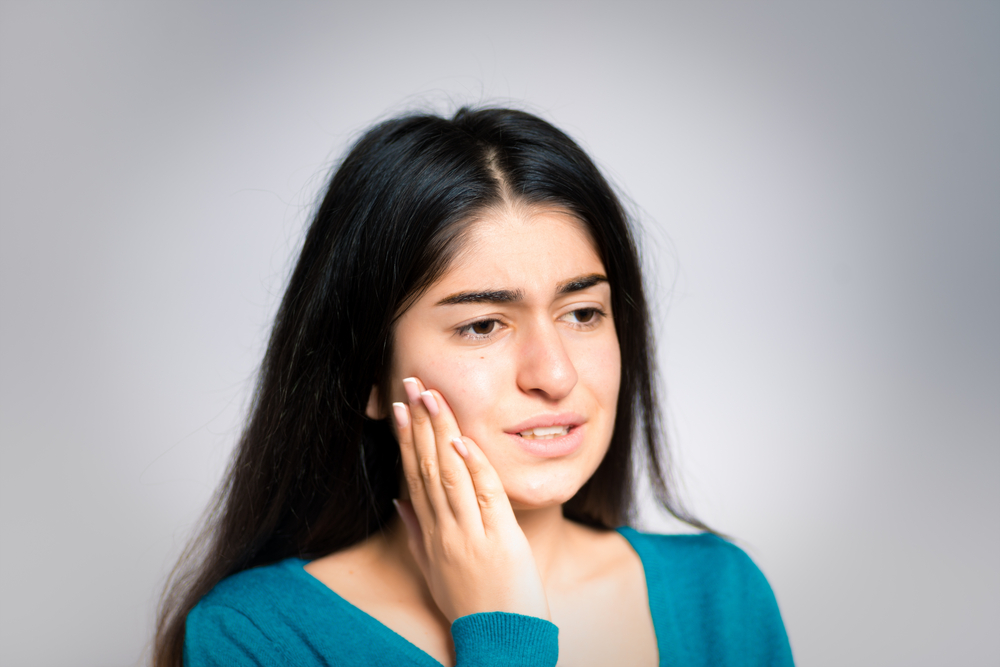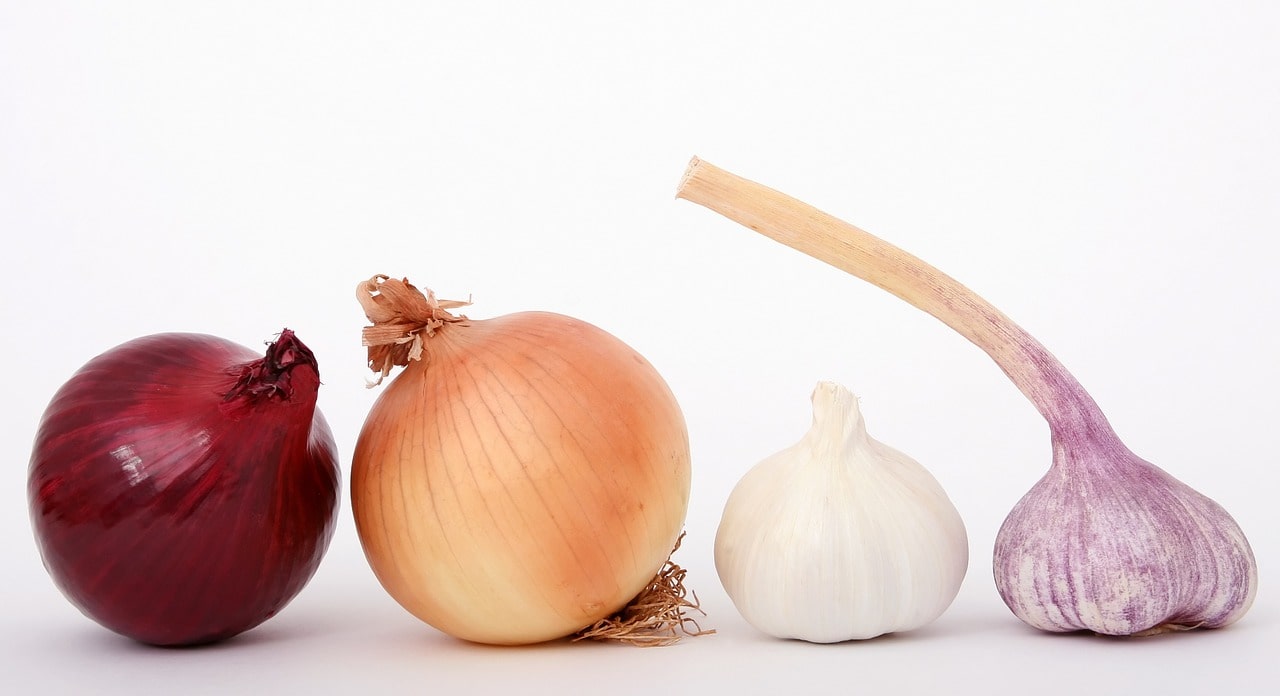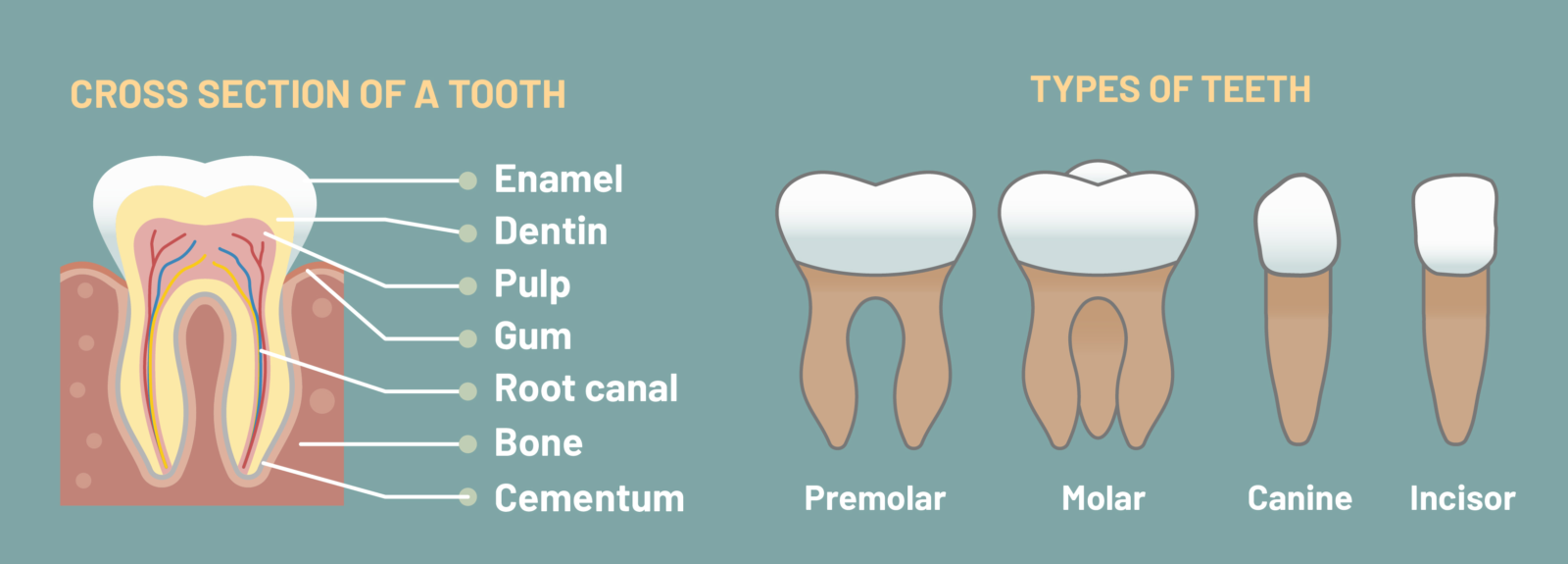Most of us take the simple act of being able to chew food comfortably and without discomfort for granted, without thinking about the importance of chewing food. It is only when biting or chewing food, called mastication, becomes uncomfortable or, even worse, causes pain that we pause and consider why this action is so critical for everyday health. Read on to discover why thoroughly chewing food is important and what to do if it becomes painful or uncomfortable.
What is Mastication?
Mastication is the process of chewing your food, using the large flat surfaces of your back teeth to grind the food into smaller pieces gradually. These teeth are perfectly adapted for this process with many small grooves and fissures. Masticating or chewing your food thoroughly is the first stage of digestion. Breaking down your food into smaller pieces increases the surface area, so your body more easily absorbs nutrients. As you chew, the food is lubricated with saliva, and your saliva contains digestive enzymes, starting the process of digestion. Saliva moistens food, so it forms into a bolus, making it easier to swallow.
Why is Chewing Food Important for Digestion?
If you fail to chew your food thoroughly, it can impair digestion as your body may not produce sufficient enzymes to break down the food properly. Chewing food also prompts the production of acid in your stomach that helps aid digestion further. Unless the food is broken down correctly, it can cause digestive problems, including:
- Indigestion
- Heartburn
- Bloating
- Acid reflux
- Diarrhoea
- Gas
- Constipation
In addition, failing to chew your food properly can cause other problems, including:
- Nausea and headaches
- Malnutrition
- Skin problems
- Irritability
How Long Do I Need to Chew Before Swallowing?
There have been studies into how many times you need to chew food for proper digestion, and it’s estimated food should be chewed about 32 times. However, when eating harder foods like nuts and steak, you may need to chew your food up to 40 times for each mouthful. When eating softer foods like mashed potato, you may only need to chew your food between five and ten times per mouthful. One question people frequently ask is should you drink water while eating? It might seem like a healthy habit, but drinking too much fluid while eating can slow down digestion. Therefore you should avoid drinking water and instead concentrate on eating your meal, so if you can sit at a table and don’t watch TV, and focus on chewing your food thoroughly. You may be surprised that this makes eating more enjoyable as you can savour each bite. You can also improve your digestive health by eating food that helps digestion, such as fermented foods and raw and steamed vegetables.
Advantages of Chewing Your Food Thoroughly
If this seems like a long time to chew food, remember that the more you chew your food, the longer it takes to finish your meal which can help with portion control. It takes around 20 minutes for your brain to signal that your stomach is full, so eating your meals more slowly makes it less likely that you will overeat.
Another reason for chewing food thoroughly includes nourishing the lining of your gut. Your saliva contains epithelial growth factor, a polypeptide that helps aid the growth and repair of epithelial tissue in the gut. If you don’t chew your food properly, food particles that aren’t broken down can cause bacterial overgrowth, leading to increased fermentation in the gut. This problem can cause indigestion, constipation, gas and bloating.
When food is chewed properly, it helps protect your overall health by making sure your body has all the nutrients needed for growth and repair. It is important to have a good quality diet containing proteins because these are broken down into amino acids essential for growth and development. We cannot store amino acids, so unless you chew your food properly, your body cannot digest and utilise these amino acids efficiently.
Why Do My Teeth Hurt When Chewing Food?
If you begin to notice that chewing is uncomfortable or causes tooth pain or sensitivity, it could indicate a dental problem. Tooth sensitivity can signify that sensations like hot, cold, sweet or sour are reaching the tooth nerve. Tooth sensitivity causes include the following.
Enamel Erosion
A hard outer coating of enamel protects each tooth, but this can be eroded if exposed to acids in foods and drinks or if you brush your teeth too hard. As the enamel erodes, it exposes the softer part of the tooth called the dentine underneath, making it easier for hot or cold sensations to be transmitted to the tooth nerve in the dental pulp right in the centre.
Tooth Decay
When enamel is eroded, it allows bacteria to enter the tooth, and these bacteria eventually cause cavities or tooth decay. Without treatment, the decay can reach the tooth nerve, causing pain.
Root Canal Infection
When bacteria reach the dental pulp, they can cause severe infection and pain. These bacteria can reach the dental pulp because of untreated tooth decay or if you have a crack in a tooth that will slightly open whenever you bite down, allowing bacteria to get inside it.
Dental Abscess
Unless a root canal infection is treated promptly, it can develop into an abscess, where a pocket of pus develops around the tooth root, causing significant pain. In rare cases, a dental abscess can become life-threatening if the infectious bacteria spread beyond your jaws. Potential warning signs include feeling unwell, high fever and facial swelling. If you notice these signs, you must seek emergency dental care immediately.
Receding Gums
Gums can recede if you brush your teeth too hard, use a hard-bristled toothbrush, or have signs of gum disease. Receding gums expose tooth roots that aren’t covered with tooth enamel and can more easily develop tooth decay. Exposed tooth roots can quickly become sensitive.
Poor Bite
Teeth that are out of alignment and crooked can make it harder to chew food properly. While this may not be painful, it can be uncomfortable.
Jaw Joint Problems
Your jaw joints, called temporomandibular joints, let you move your lower jaw smoothly from side to side and up and down. If these joints become inflamed, chewing food can feel painful. Other warning signs include noticing your jaw joints clicking or popping when you try to move your lower jaw.
Why Can’t I Chew My Food? What to Do if Your Teeth Hurt
If your teeth hurt when you chew or at other times, make an appointment to come and see us at Tandara Dental. Our dentist can gently assess your teeth, quickly identifying any problems that could cause pain when you bite and chew food. We may want to take digital dental x-rays to identify any problems that could be hidden from view, such as tooth decay or a root canal infection, or problems with your jaw joints.
Once we have identified the problem, we can recommend suitable ways to deal with this issue. If you have signs of enamel erosion or cavities, you might need restorative treatment like dental bonding to mend chips or cracks in teeth or a filling.
A root canal infection normally needs root canal therapy, where we remove the infection and restore the tooth, usually with a crown that covers the entire tooth and offers excellent protection. Please don’t delay in seeking dental care for a root canal infection, as there is a greater chance that we can save the tooth from extraction when we can treat it sooner, and it will get rid of that nasty toothache.










